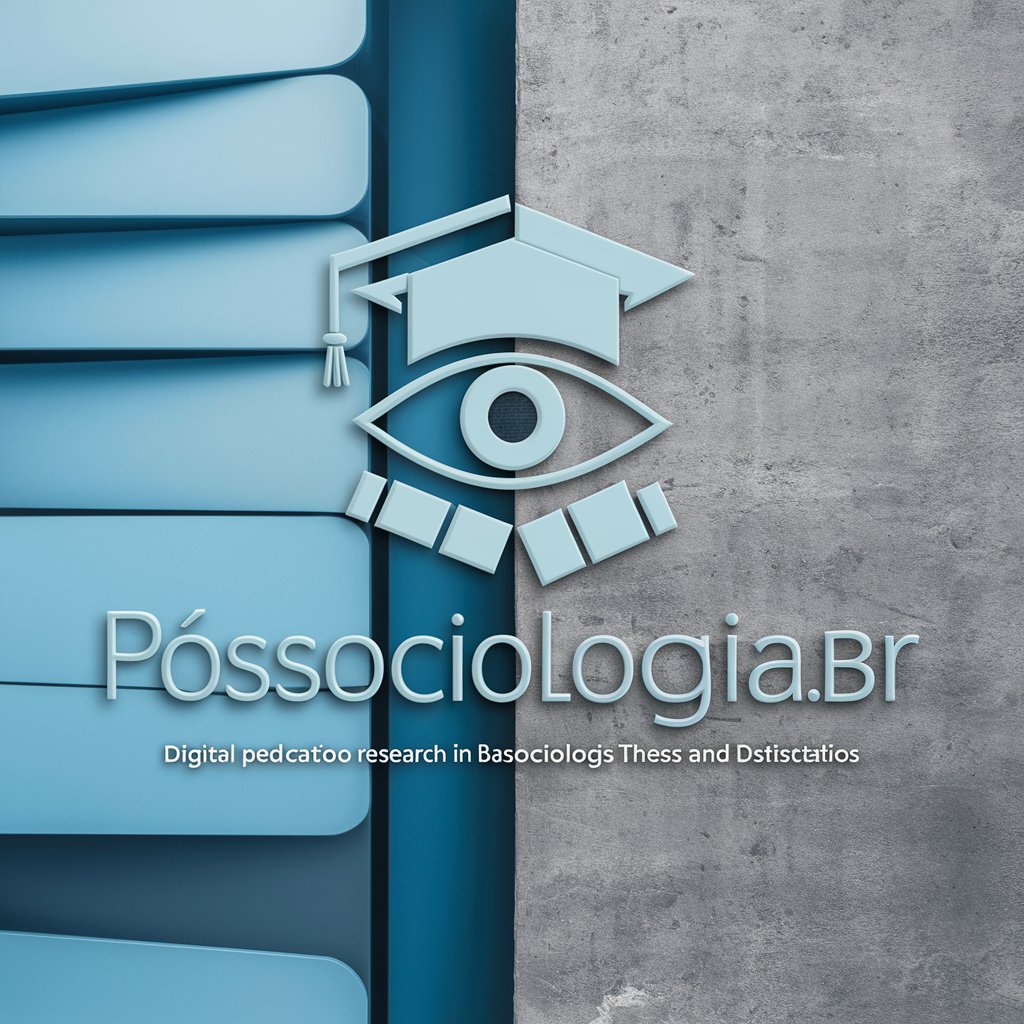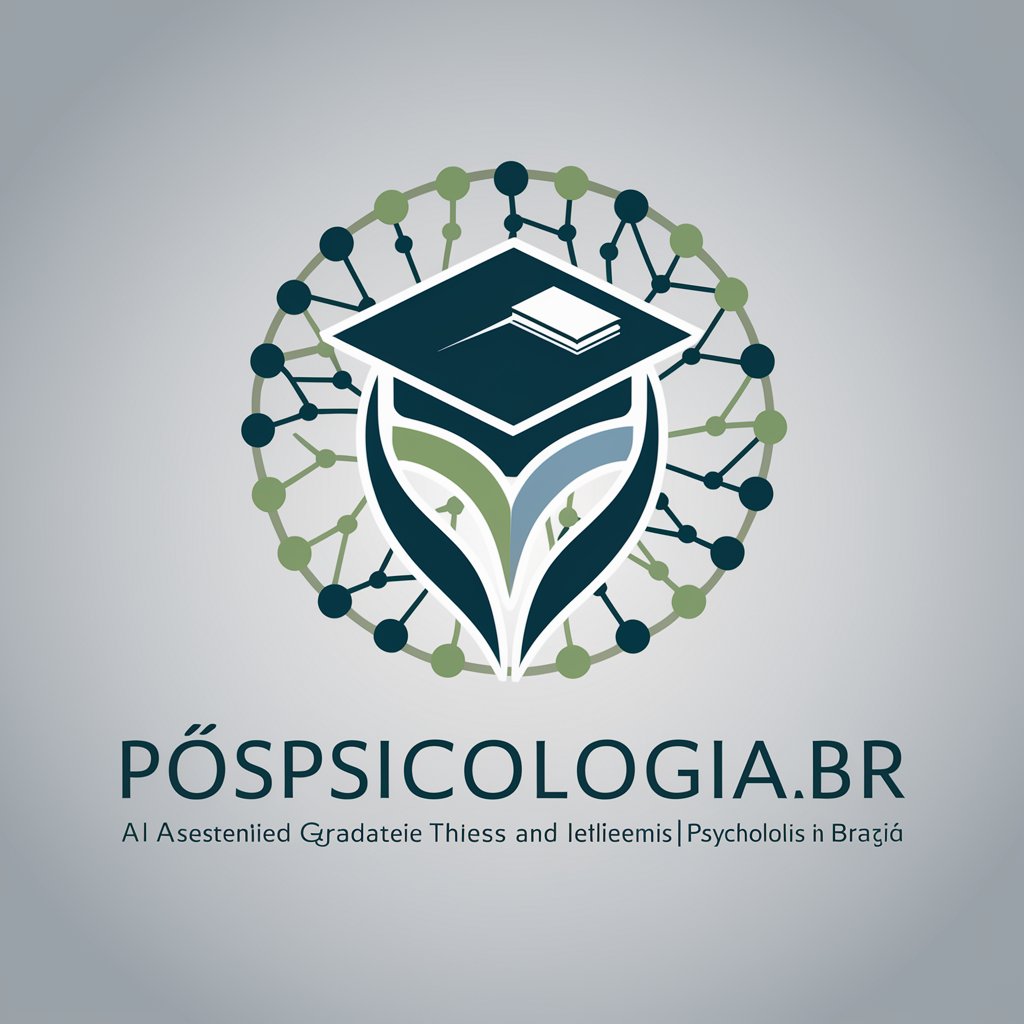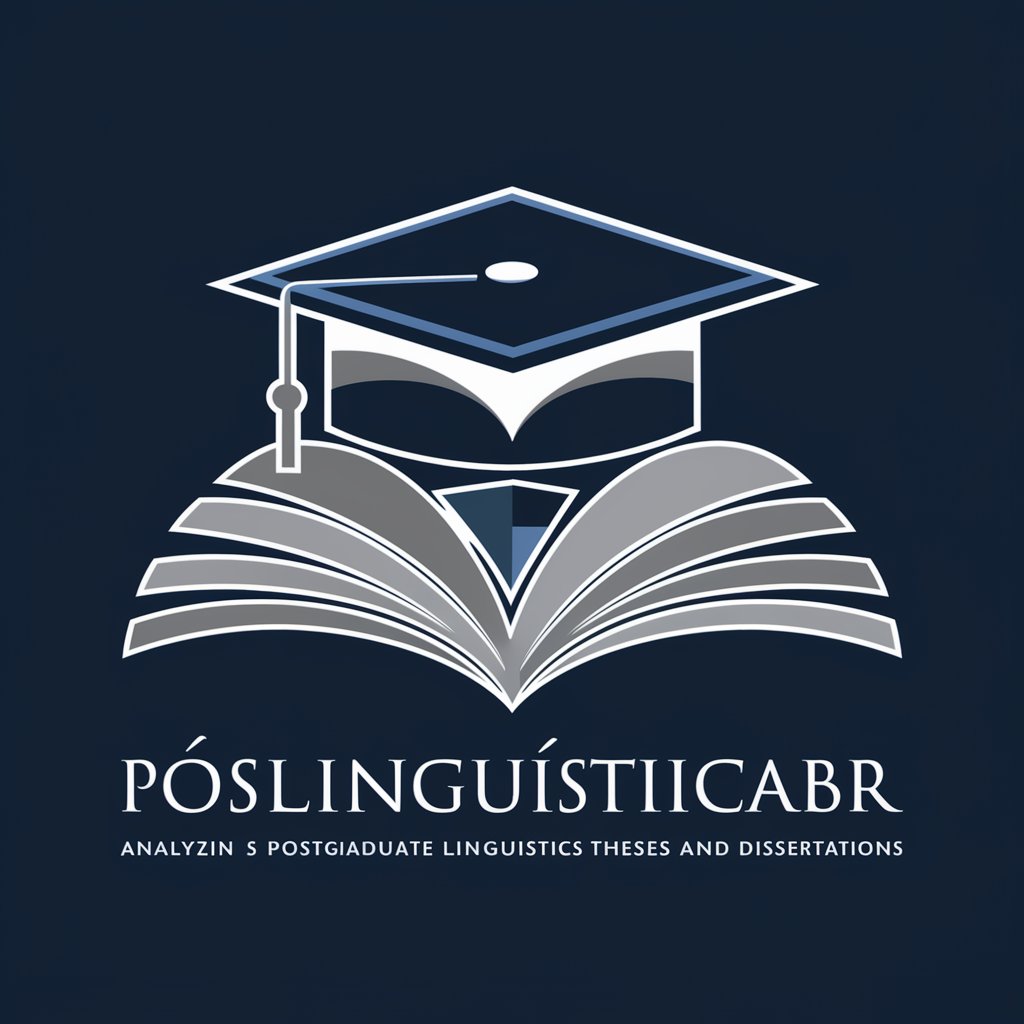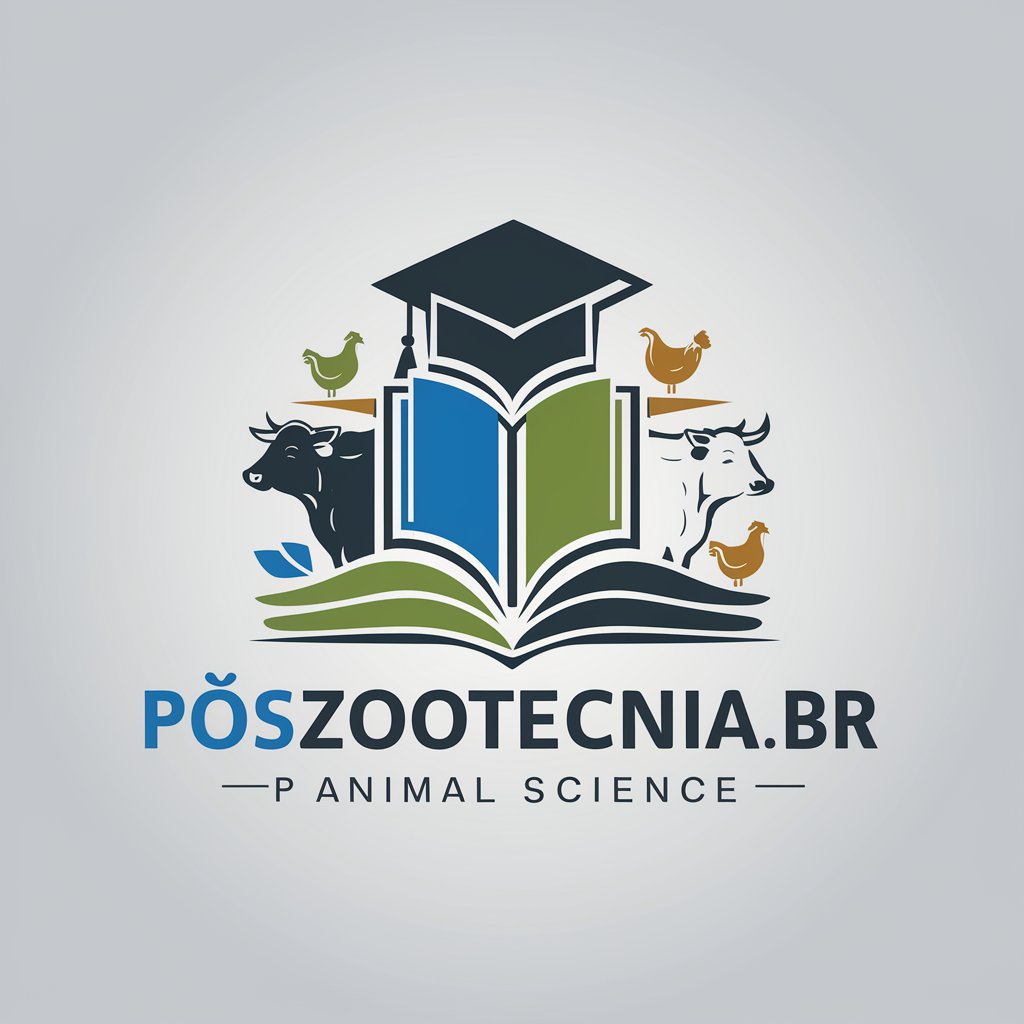
PósZoologiaBR - Zoology Thesis Insights

Olá! Posso ajudar com pesquisas em Zoologia.
AI-powered Zoology Research Explorer
Search for dissertations on marine biology published in the last 5 years.
Generate a chart showing the number of theses per year for the past decade.
List the top research topics in Zoology based on keyword frequency.
Provide a summary of theses related to biodiversity conservation.
Get Embed Code
Introduction to PósZoologiaBR
PósZoologiaBR is a specialized GPT designed to offer detailed information and analyses on postgraduate theses and dissertations in Zoology in Brazil. It is tailored to generate semantic research, graphs, listings, and spreadsheets, emphasizing accuracy and relevance of information. This GPT utilizes data from the 'Catalog of Theses and Dissertations - Brazil', a resource provided by the Coordination for the Improvement of Higher Education Personnel (CAPES), under a Creative Commons Attribution (CC BY) license. It is programmed to handle user requests in natural language, neither too formal nor too informal, and to prioritize precision and relevance in the information provided. For example, a user inquiring about trends in marine biodiversity studies over the last decade can receive a detailed analysis, including a graphical representation of the number of dissertations focused on this topic, illustrating PósZoologiaBR's design purpose. Powered by ChatGPT-4o。

Main Functions of PósZoologiaBR
Semantic Search
Example
A user searches for dissertations that explore the impact of climate change on amphibian populations in Brazil.
Scenario
PósZoologiaBR performs a semantic search through titles, abstracts, and keywords, providing a list of relevant dissertations along with a summary of findings, illustrating how this function aids in navigating the extensive bibliographic universe.
Data Visualization
Example
Visualizing the growth in entomology-related research within Zoology postgraduate programs over the years.
Scenario
The GPT generates line graphs showing the number of dissertations and theses by year, highlighting trends and shifts in research focus, which is crucial for researchers and program coordinators to understand evolving interests.
Custom Data Reports
Example
Compiling a report on the geographic distribution of zoology research in Brazil, focusing on specific ecosystems.
Scenario
PósZoologiaBR creates detailed spreadsheets and visual maps, allowing users to identify research hotspots and gaps, useful for policymakers and conservationists planning biodiversity conservation efforts.
Ideal Users of PósZoologiaBR Services
Academic Researchers
This group includes postgraduate students, faculty members, and other scholars interested in Zoology. They benefit from PósZoologiaBR's ability to quickly locate relevant studies, track trends in research, and identify gaps in the literature, facilitating literature reviews and the formulation of new research questions.
Policy Makers and Conservationists
Government officials, NGO workers, and environmental consultants can use PósZoologiaBR to access up-to-date research findings relevant to biodiversity conservation, environmental policy, and sustainable management of natural resources. The service's data visualization and reporting functions can inform evidence-based decision-making and policy formulation.

How to Use PósZoologiaBR
1
Visit yeschat.ai for a free trial, no login or ChatGPT Plus subscription required.
2
Select PósZoologiaBR from the list of available GPTs specializing in Zoology to start your session.
3
Input your question or research topic related to postgraduate theses and dissertations in Zoology in Brazil.
4
Use the provided insights, such as semantic searches, graphs, listings, and spreadsheets, to explore your topic in depth.
5
For advanced queries, utilize specific commands like 'list', 'graph', or 'semantic search' to refine your results.
Try other advanced and practical GPTs
PréURL Scribe
Sparking curiosity with AI-driven content

Marketing Optimizer
Optimize Your Digital Presence with AI

Advogado das Famílias
Empowering Families with AI-driven Legal Insights

Inspiração Clássica
Transforming thoughts into clarity.

Sommelier Grape Time
AI-powered Wine Expertise
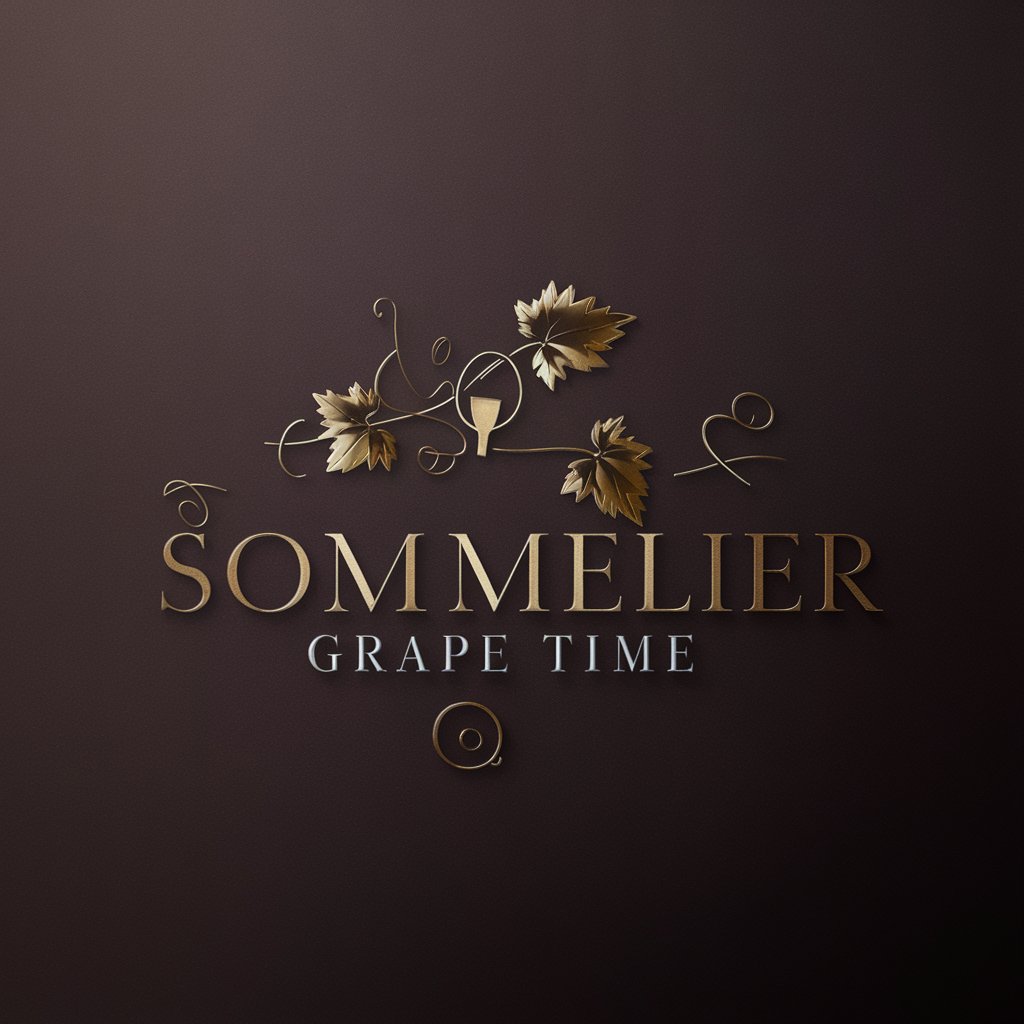
CAIO VirtuAI
Empowering Communication with AI

Calabreso
Empowering Pizzerias with AI-driven Marketing

PósCiênciasHumanasBR
Empower Your Research with AI-Driven Insights

Eco Tech
Empowering green futures with AI and blockchain

GPT Mestre
Elevate Your AI Interactions
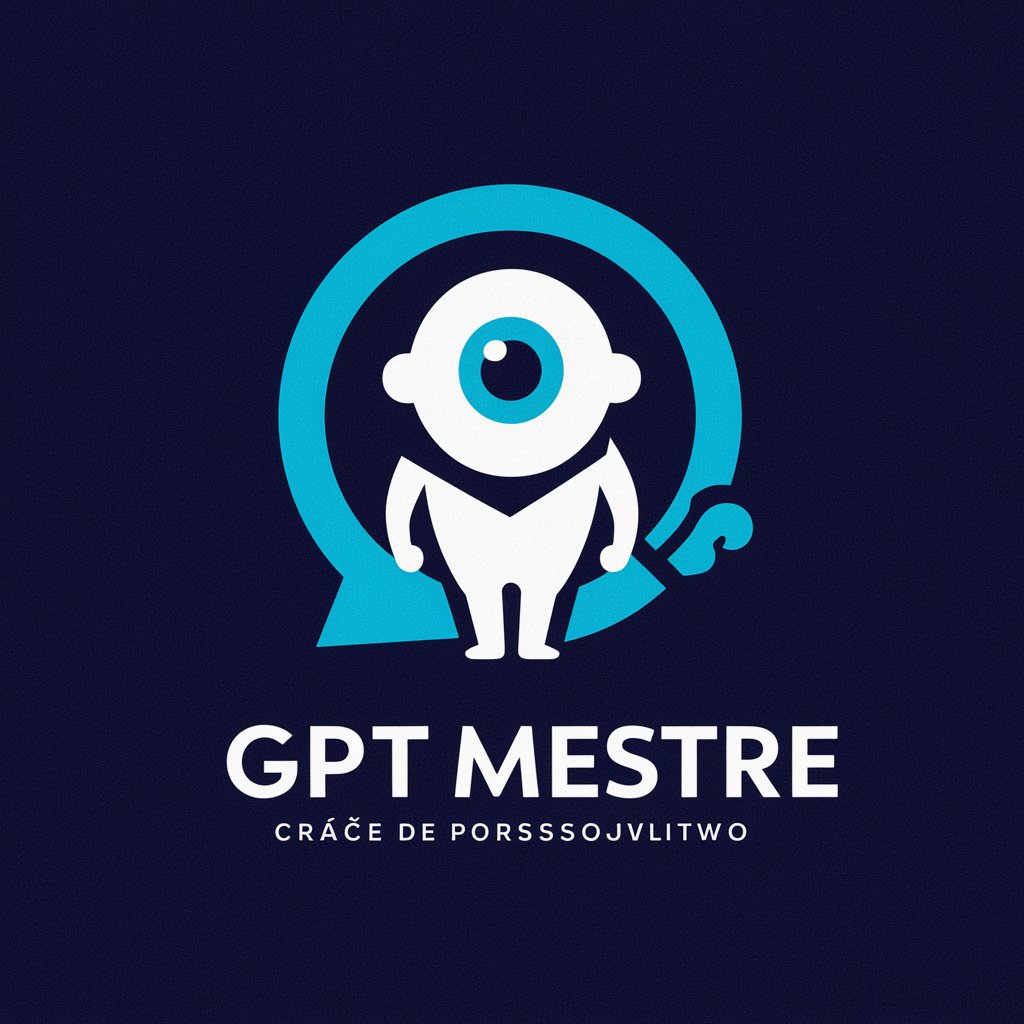
ABE
Enhancing Texts with AI-Powered Precision
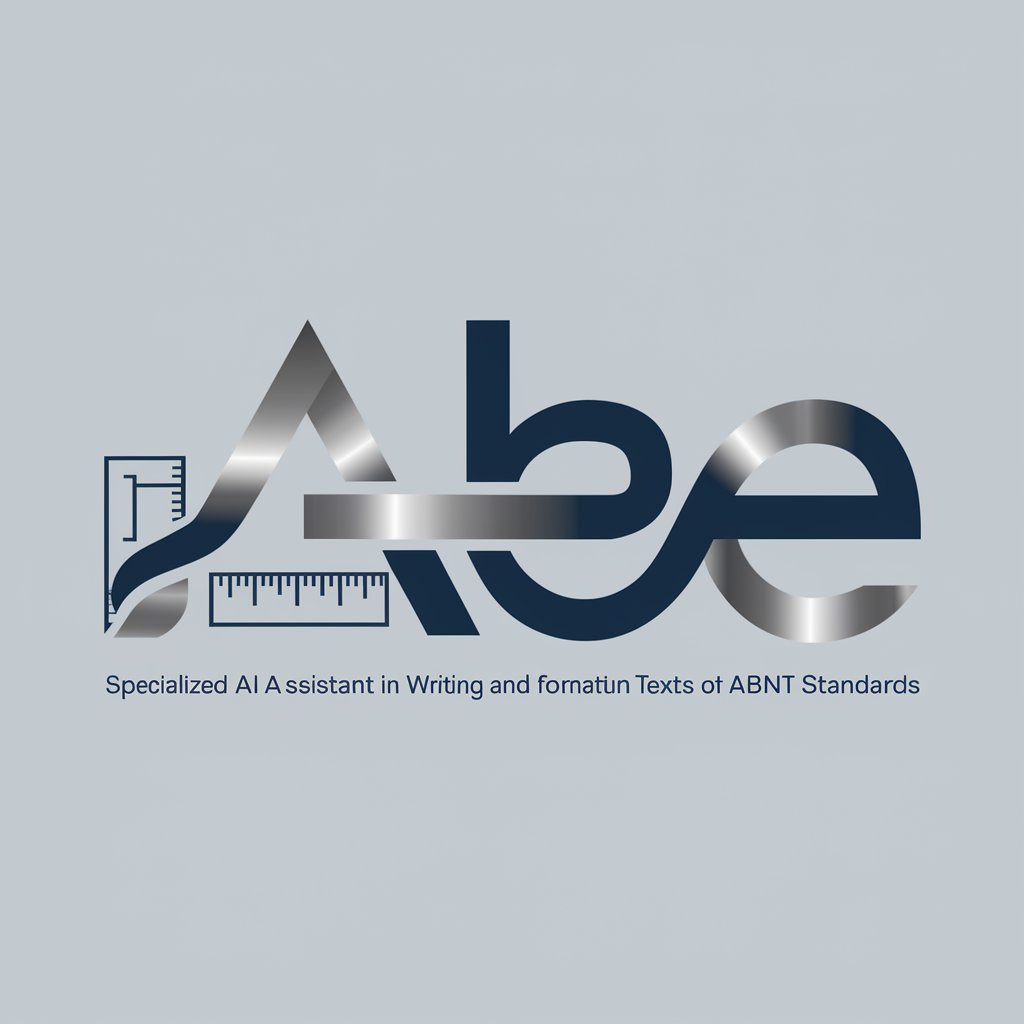
Robô de Reels
Craft engaging reels effortlessly with AI

Questions & Answers about PósZoologiaBR
What is PósZoologiaBR?
PósZoologiaBR is an AI-powered tool designed to provide detailed information and analysis on postgraduate theses and dissertations in Zoology from Brazil, utilizing data from the CAPES Thesis and Dissertation Catalog.
How can PósZoologiaBR assist in academic research?
It aids researchers by offering semantic searches, generating graphs, and compiling lists and spreadsheets of zoological postgraduate work, thus facilitating access to extensive academic content.
Can PósZoologiaBR help find specific topics within Zoology?
Yes, it can search for specific themes, contents, or keywords within the fields of titles, abstracts, and keywords of theses and dissertations in Zoology.
Is PósZoologiaBR useful for tracking Zoology research trends?
Absolutely. It can analyze data to showcase trends over time, including the volume of research produced annually, popular research topics, and key areas of study within Zoology.
How does PósZoologiaBR handle different languages in research documents?
It processes data in Portuguese and English, especially in abstracts and keywords sections, ensuring accessibility for a wider range of users.

